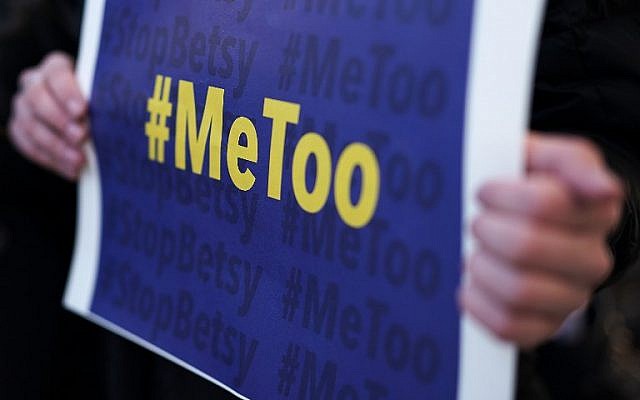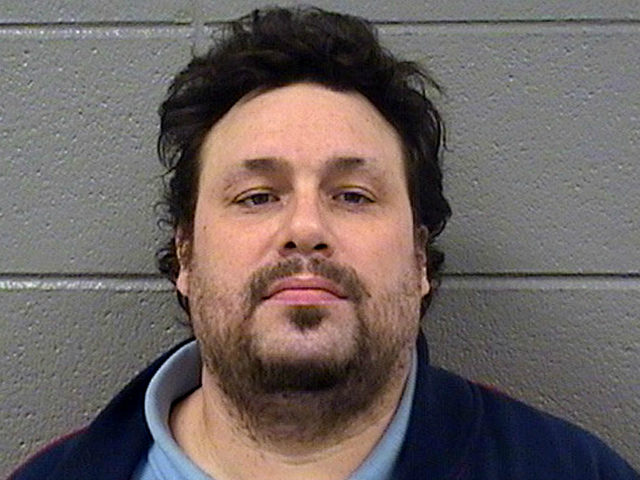 |
| HOW DO YOU SAY COVERUP IN HEBREW? |
Letter Suggests Pope Knew About Abuse Complaints, Despite Denials

Things keep getting worse for Pope Francis.
Late last month, the pope reiterated his defense of a Chilean bishop,
contending that he had never received any complaints that the prelate
knew of abuse by the country’s most notorious pedophile priest.
But
on Monday, The Associated Press reported that the pope personally
received an eight-page letter in 2015 from one of the victims. The
letter explicitly detailed abuses the victim said were witnessed by
other clerics, including Juan Barros Madrid, who was appointed bishop of
Osorno, Chile, that year.
The
report that one of the pope’s top advisers had personally handed him
the letter has revived accusations by advocates for abuse victims that
the 81-year-old pontiff cannot, or will not, understand an issue that
has long roiled the Roman Catholic Church.
“There
is what you might call a willful blindness,” said Peter Saunders, a
former member of the pope’s Commission for the Protection of Minors,
whose mandate expired in December. “It’s almost angry unwillingness to
accept what in front of him, because to acknowledge it is to acknowledge
that the church still has to clean up its act. He’s been behaving like a
spouse who is told that their spouse is abusing their kids, and can’t
believe it.”
A
copy of the letter was provided to The New York Times by its author,
Juan Carlos Cruz, who has accused the Rev. Fernando Karadima, once one
of Chile’s most prominent Catholic priests, of abuse. The church has
found Father Karadima guilty of abusing minors from 1980 to 1995 and penalized him in 2011.
In the letter, Mr. Cruz wrote that Bishop Barros, who was a priest at the time, witnessed the abuse.
Pope Francis has repeatedly discounted the accusations against Bishop Barros as slander, and his defense of him cast a shadow over a trip he made to Chile in January. Last week, facing mounting criticism for siding with clergy members over victims, the pope sent the Vatican’s top sex crimes investigator to Chile to hear their accusations.
The disclosure of the letter has raised difficult questions for the pope.
Did
he read the letter and decide not to tell reporters about it? Did he
choose to believe Bishop Barros over Mr. Cruz? Or did he never read the
letter, or perhaps read it but forget about it.
For Mr. Cruz, the pope has become “just like the others.”
“He covers up and doesn’t listen to the victims,” he said.
Some veteran Vatican analysts said that perhaps the pope had information not available to other people.
Marco
Politi, a Vatican expert and the author of the book “Pope Francis Among
the Wolves,” said the pope’s continued belief in the innocence of
Bishop Barros must have been based on an internal investigation. If the
pope erred, Mr. Politi said, “it was that he did not send Bishop Charles
Scicluna earlier.” Bishop Scicluna is the investigator the pope sent to
Chile.
The
case against Bishop Barros erupted in 2015 when the pope named him, a
former chaplain in the Chilean armed forces, to lead the Osorno diocese
amid widespread protest. Bishop Barros has denied knowing about the
abuse until 2010, when accounts emerged in the news media.
Concerned
by the accusations against the Chilean bishop, members of the
Commission for the Protection of Minors traveled to Rome so that they
could deliver Mr. Cruz’s letter to the pope.
“We
all felt that the Barros appointment had been a mistake, and when Juan
Carlos told me he had been trying to be heard, we thought that this was
an opportunity to get the details directly to the pope,” said Marie
Collins, a survivor of abuse who resigned from the commission
last year in frustration over its inaction. “If Barros hadn’t
recognized abuse when it had happened under his eyes, it was difficult
to see how those in his diocese would be properly protected,” she said.
In
April 2015, four members of the commission met with Cardinal Sean
O’Malley, who led the commission, in the Casa Santa Marta, where the
pope lives. Ms. Collins asked him to personally deliver the letter to
Francis.
They
commemorated the moment when they delivered Mr. Cruz’s letter with a
photograph. “We thought it would be nice for the survivors of abuse to
know that we were doing the best that we could do for them,” Ms. Collins
said.

The
working group issued a statement at the time saying that it was
essential for a bishop to enact effective policies and monitor
compliance, “in the light that sexual abuse is so common,” but did not
mention Mr. Cruz’s letter.
At
the commission’s next meeting several weeks later, Cardinal O’Malley
confirmed that he had delivered the letter to the pope, Ms. Collins
said. Mr. Cruz said Cardinal O’Malley had told him that he delivered the
letter himself.
Last
month, after the pope’s remarks dismissing allegations against Bishop
Barros as “slander,” Cardinal O’Malley issued a remarkable defense of
the victims.
Delivering
the letter was the only time, as far as Ms. Collins knows, that members
of the commission tried to speak to the pope about a specific case, she
said. But she also said that while she is convinced that the letter was
given to the pope, she cannot be sure if he read it.
“I
have no idea because he has continued to support Barros over three
years, and never met with the survivors,” she said. “I can’t judge. The
pope is a good man. I have no idea why he wouldn’t have considered the
concerns of the members of his commission.”
The
new commission for the protection of minors — whose members have not
been announced — is expected to hold its first plenary session in April.
Mr. Saunders, who was dismissed from the commission in 2016
for being too outspoken, was also present at the April 2015 meeting.
The commission members had hoped to speak directly with the pope, but
instead met with Cardinal O’Malley, he recalled.
“O’Malley said the letter would be handed to Francis, who I think was literally in the next room,” he said.
https://www.nytimes.com/2018/02/05/world/europe/pope-sex-abuse-barros-karadima.html?emc=edit_tnt_20180205&nlid=32999454&tntemail0=y


















The Arad suicide makes the front page of all three major dailies Sunday morning, and is accompanied by a goodly amount of commentary over the “hard questions” that followed, in Israel Hayom’s language.
Yedioth Ahronoth leads off with the story, which takes up almost the whole front page and the next three pages of the tabloid. One might think that the prominence the paper gives to what amounts to a very personal and domestic story is indicative of it seeing a larger scandal within, but the paper makes clear it has no truck with sympathy for the devil.
“Crime and punishment,” reads the headline of the paper’s main news story, which is accompanied by self-portraits from Arad of him shooting himself. The story notes that he was the third teacher in the Telma Yellin school in Givatayim to be accused in just two weeks, but mostly focuses on Arad and how the story on him led to his death. (Two complementary stories from the paper delve into the allegations of a wider harassment culture at the art school.)
As for the supposed hard questions, two of the papers’ commentators come to the same conclusion: He’s not a victim and the journalists were doing their job.
At the same time, the paper’s Hen Arzi-Srour links the death to the #MeToo movement.
“The level of suicide and physical and emotional damage among the victims of violence is unbearable. They, unlike those who hurt them, have no power or standing. They are the ones who are taken advantage of and always brought down. They cry in the dark, alone, out of sight. The victims die in secret. They have no name or face or identity,” she writes. “This isn’t shaming here since the article was well-founded, truthful and to the point: a man who admitted to his deeds. The time has come to say that in the age of #MeToo, the rules have changed. The victim has a voice, and the voice will no longer be quiet.”
Haaretz relegates most of its coverage of the suicide to its arts section, but the same general gist as in Yedioth comes through, including columnist Roni Bar calling the death a tragedy, but one that should not be on the head of Mako, the website that published the allegations.
“Mako journalists did their jobs and gave a voice to victims of sexual misconduct. From reading the investigation and without knowing what went on behind the scenes, it seems they worked carefully, in a well-founded and professional way. Once they became worried over Arad’s mental state they even sent a police car to his house. It’s easy to judge off the cuff, but they could not have known he would actually follow through with his threats,” Bar writes.
But in the same paper, Doron Koren writes that the journalists were out of line and too zealous in trying to join the #MeToo crowd, listing as their sins the fact that the sexual misdeeds were 25 years old and involved a consensual relationship, in his telling.
“The media is still not built to differentiate the severity of different sexual misdeeds,” he writes. “So maybe they will be more careful next time.”
https://www.timesofisrael.com/expose-leads-to-suicide-but-media-wont-play-blame-game/?utm_source=The+Times+of+Israel+Daily+Edition&utm_campaign=049f02dd32-EMAIL_CAMPAIGN_2018_02_04&utm_medium=email&utm_term=0_adb46cec92-049f02dd32-55186525